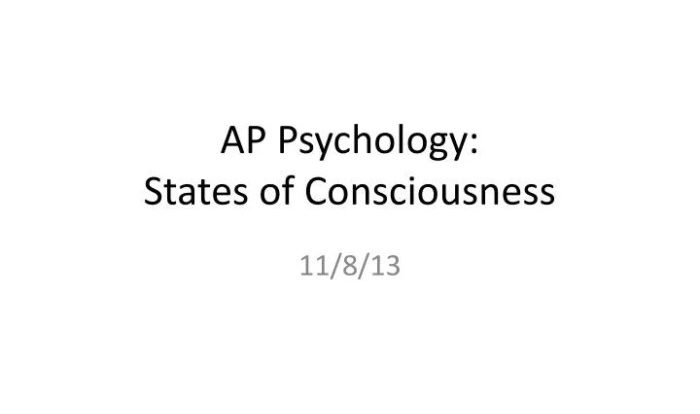Essentials of understanding abnormal behavior 3rd edition pdf free – Essentials of Understanding Abnormal Behavior 3rd Edition PDF offers a comprehensive exploration of the field of abnormal psychology, providing readers with an in-depth understanding of the concepts, theories, and treatment approaches related to mental illness. This essential resource delves into the core principles of abnormal behavior, examining its causes, diagnosis, and management, making it an invaluable tool for students, practitioners, and anyone seeking to gain a deeper understanding of mental health.
The book’s third edition has been extensively revised and updated to reflect the latest advancements in the field, ensuring that readers have access to the most current and accurate information. It presents a balanced and comprehensive overview of the major theoretical perspectives used to understand abnormal behavior, including biological, psychological, and sociocultural approaches.
Essentials of Abnormal Behavior 3rd Edition PDF Overview

The third edition of “Essentials of Abnormal Behavior” by Ronald Comer, PhD, is a comprehensive textbook that provides an up-to-date and accessible overview of the field of abnormal psychology. It is designed for undergraduate students taking introductory courses in abnormal psychology and related mental health fields.
The book covers a wide range of topics, from the definition and classification of mental disorders to the latest research on diagnosis, assessment, and treatment.
This edition has been thoroughly revised and updated to reflect the most recent developments in the field, including the publication of the Diagnostic and Statistical Manual of Mental Disorders, Fifth Edition (DSM-5). It also includes new chapters on cultural and global perspectives on abnormal behavior, as well as on the latest advances in neuroscience and genetics.
Key Concepts and Theories
Abnormal behavior is defined as any behavior that is considered to be deviant, dysfunctional, or harmful to the individual or to others. Psychopathology is the study of abnormal behavior, and mental illness is a term used to describe a mental disorder that is severe enough to require professional treatment.
There are a number of different theoretical perspectives that can be used to understand abnormal behavior. These perspectives include the biological approach, the psychological approach, and the sociocultural approach. The biological approach focuses on the role of genetics, neurochemistry, and other biological factors in the development of mental disorders.
The psychological approach focuses on the role of learning, cognition, and personality in the development of mental disorders. The sociocultural approach focuses on the role of culture, social class, and other social factors in the development of mental disorders.
Assessment and Diagnosis
The assessment and diagnosis of abnormal behavior is a complex process that involves a variety of methods, including clinical interviews, psychological tests, and observational techniques. The clinical interview is a face-to-face meeting between a mental health professional and a client in which the professional gathers information about the client’s symptoms, history, and current life situation.
Psychological tests are standardized measures that are used to assess a person’s cognitive, emotional, and behavioral functioning. Observational techniques involve observing a person’s behavior in a variety of settings, such as at home, at school, or at work.
The Diagnostic and Statistical Manual of Mental Disorders (DSM-5) is a widely used diagnostic tool that provides criteria for the diagnosis of mental disorders. The DSM-5 is published by the American Psychiatric Association and is used by mental health professionals around the world.
Major Categories of Abnormal Behavior: Essentials Of Understanding Abnormal Behavior 3rd Edition Pdf Free
Mental disorders are classified into a number of different categories, including anxiety disorders, mood disorders, personality disorders, and psychotic disorders. Anxiety disorders are characterized by excessive fear or anxiety. Mood disorders are characterized by disturbances in mood, such as depression or mania.
Personality disorders are characterized by inflexible and maladaptive personality traits. Psychotic disorders are characterized by a loss of contact with reality, such as hallucinations or delusions.
- Anxiety disorders: These are the most common mental disorders, affecting about 18% of the population. They include generalized anxiety disorder, panic disorder, social anxiety disorder, and obsessive-compulsive disorder.
- Mood disorders: These disorders affect about 10% of the population. They include depression, bipolar disorder, and cyclothymic disorder.
- Personality disorders: These disorders affect about 10% of the population. They include borderline personality disorder, antisocial personality disorder, and narcissistic personality disorder.
- Psychotic disorders: These disorders affect about 1% of the population. They include schizophrenia, schizoaffective disorder, and delusional disorder.
Treatment and Intervention

There are a variety of different treatment approaches that can be used for abnormal behavior. These approaches include psychotherapy, medication, and behavioral interventions. Psychotherapy is a type of talk therapy that helps people to understand and change their thoughts, feelings, and behaviors.
Medication can be used to treat the symptoms of mental disorders, such as anxiety or depression. Behavioral interventions are designed to change a person’s behavior, such as by teaching them new skills or by helping them to avoid situations that trigger their symptoms.
- Psychotherapy: This is the most common treatment for mental disorders. There are many different types of psychotherapy, such as cognitive-behavioral therapy, psychodynamic therapy, and humanistic therapy.
- Medication: Medication can be used to treat the symptoms of mental disorders, such as anxiety or depression. There are many different types of medication that can be used, and the type of medication that is prescribed will depend on the specific disorder that is being treated.
- Behavioral interventions: These interventions are designed to change a person’s behavior, such as by teaching them new skills or by helping them to avoid situations that trigger their symptoms.
Ethical and Legal Considerations
The diagnosis and treatment of abnormal behavior raises a number of ethical and legal issues. These issues include confidentiality, informed consent, and the role of culture in mental health care.
- Confidentiality: Mental health professionals are required to keep the information that they learn about their clients confidential. This means that they cannot share this information with anyone else without the client’s consent.
- Informed consent: Mental health professionals must obtain informed consent from their clients before they can provide treatment. This means that they must explain the risks and benefits of treatment to the client and make sure that the client understands what they are agreeing to.
- Role of culture: Culture plays an important role in the diagnosis and treatment of mental disorders. Mental health professionals must be aware of the cultural factors that can influence the presentation of mental disorders and the effectiveness of treatment.
Cultural and Global Perspectives
The understanding and treatment of abnormal behavior varies across cultures. In some cultures, mental disorders are seen as a sign of weakness or shame, while in other cultures they are seen as a natural part of life. The availability of mental health services also varies across cultures, and this can have a significant impact on the treatment of mental disorders.
Mental health professionals must be aware of the cultural factors that can influence the diagnosis and treatment of mental disorders. They must also be aware of the resources that are available to help people with mental disorders in different cultures.
FAQ Corner
What are the key concepts of abnormal behavior?
Key concepts include normality, psychopathology, mental illness, and the major theoretical perspectives used to understand abnormal behavior.
How is abnormal behavior assessed and diagnosed?
Assessment methods include clinical interviews, psychological tests, and observational techniques, while diagnosis is based on criteria from the Diagnostic and Statistical Manual of Mental Disorders (DSM-5).
What are the major categories of abnormal behavior?
Major categories include anxiety disorders, mood disorders, personality disorders, and psychotic disorders.
What are the ethical and legal considerations in the treatment of abnormal behavior?
Ethical and legal issues include confidentiality, informed consent, and the role of culture in mental health care.
